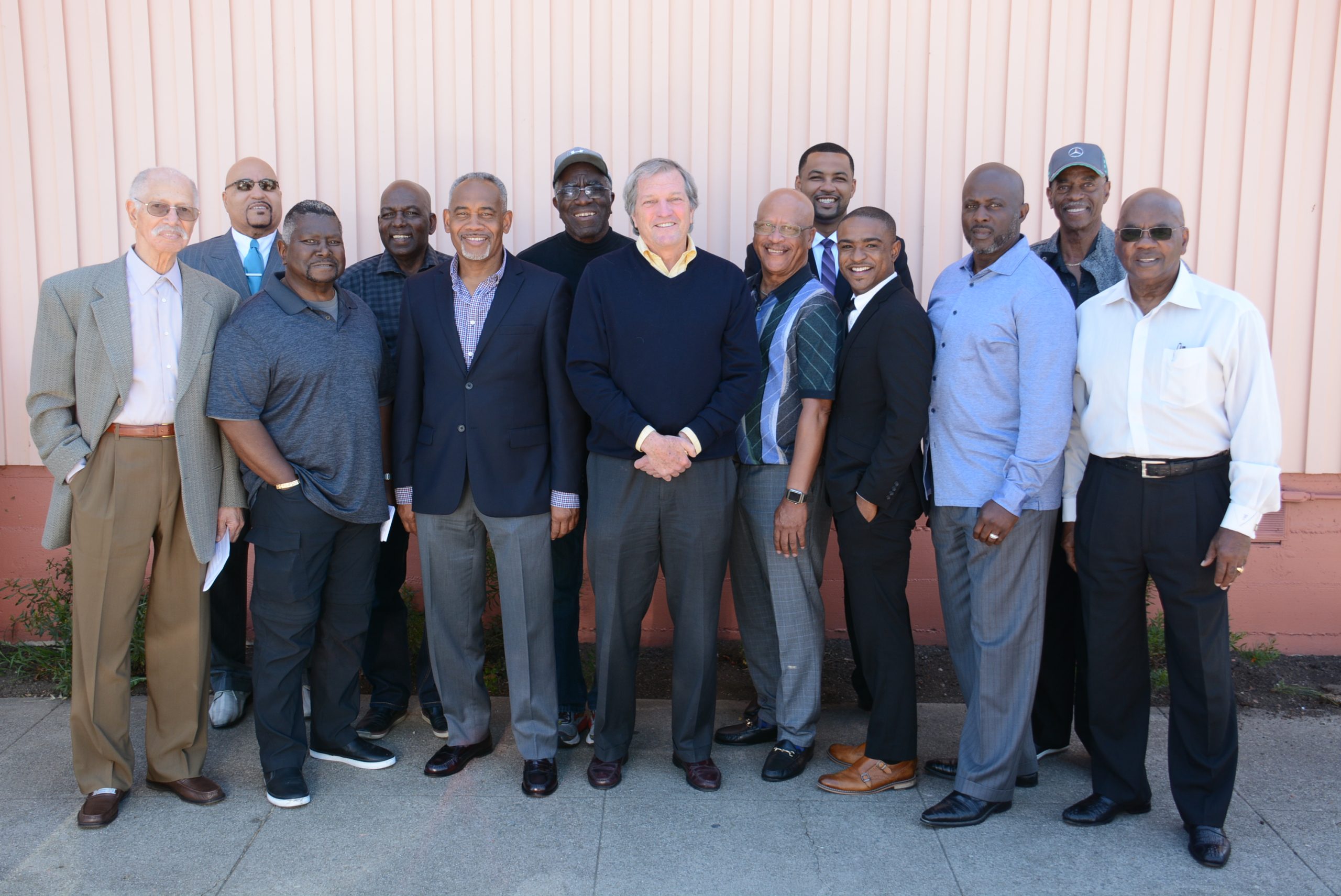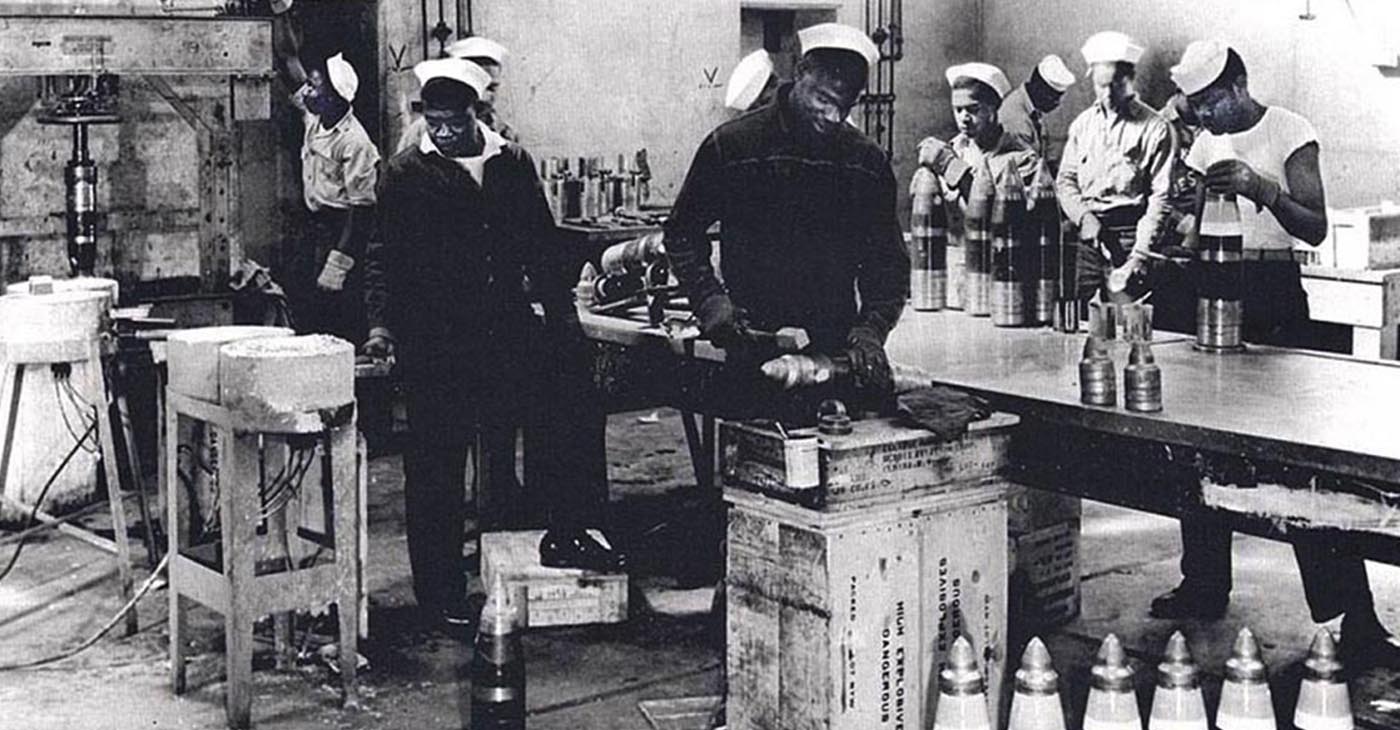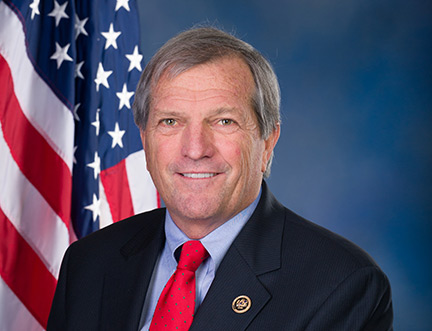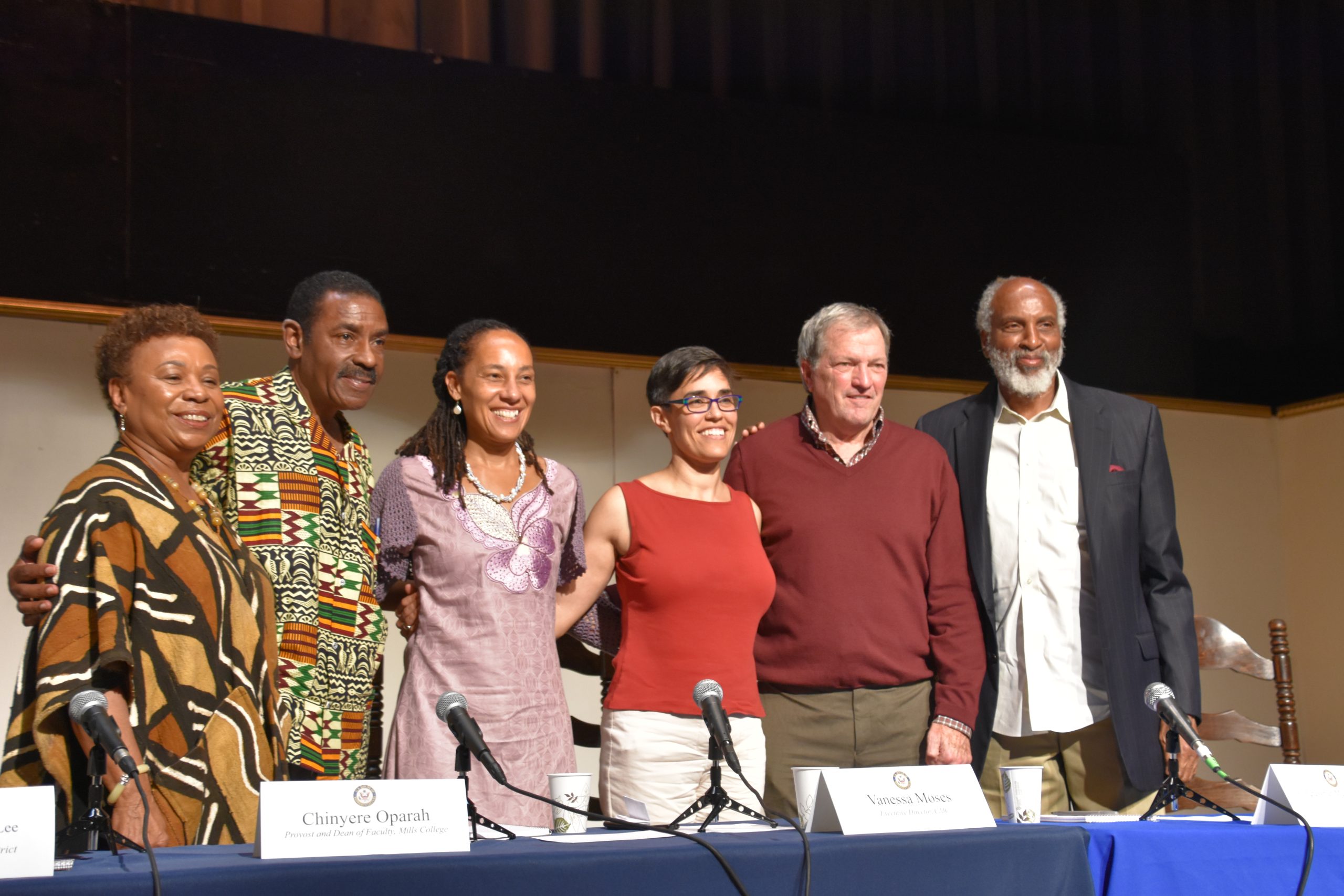Congressman Mark DeSaulnier
Black Advocates for Progress and Change Meet With Rep. Mark DeSaulnier

On Monday April 22, 2019, a group of concerned Black men met with U.S. Rep. Mark DeSaulnier at the offices of Fisher Realtors in Richmond for the express purpose of discussing the Black Agenda.
The core group of men, who have known each other for decades, collectively recognized the need to become more proactive in finding solutions for issues that consistently impact the Black community often at rates much higher than other affected groups.
The conversation focused on education, employment, entrepreneurship, the criminal justice system, homelessness and voter registration, all cornerstone issues to the Black agenda. The objectives of the meeting were to outline specific concerns in each area and to identify resources within the congressional district that can be used right now and to also lay the groundwork for developing a comprehensive and ongoing plan of action.
Congressman DeSaulnier was very generous with his time, expressed his sincere concern, shared his thoughts, and welcomed the opportunity to work further with the group, who have adopted the moniker Black Advocates for Progress and Change. The congressman was accompanied by his District Director in Walnut Creek Shanelle Scales-Preston and District Representative in Richmond Taylor Kimber. They were tasked with directing the group to additional resources that will aid in moving the agenda items forward.
The men in attendance at the Black Agenda meeting with DeSaulnier were Carl Adams, Brandon Evans, Joe Fisher, Donald Hampton, Demnlus Johnson III, Bobby King, Lloyd Madden, Ray McCoy, Jim McMillan, Clarence Turner, Vern Whitmore and Jeffrey Wright. Unable to attend due to scheduling conflicts were Michael Davenport, Leon Hunter, Dwayne Robinson, Jake Sloan, Irvin Stuart, and McKinley Williams.
It was a productive meeting and a good start. It is notable to acknowledge that elder statesman, Jim McMillan, a former Richmond city councilmember was present at 91 years of age as was newly elected Richmond City Councilmember Demnlus Johnson III at 26 years of age. Solving the issues will require the insight and participation of everyone.
Activism
Leaders Push Pardons, Payouts for “Port Chicago 50” Black Sailors U.S. Navy ‘Unjustly’ Punished
According to a 2009 California Senate Joint Resolution (SJR-21), authored by former state Sen. Roderick Wright (D-Inglewood), on the night of July 17, 1944, two transport vessels loading ammunition bound for the war in the Pacific at the Port Chicago naval base on the Sacramento River in California were suddenly engulfed in a gigantic explosion.

By Antonio Ray Harvey | California Black Media
A growing chorus of Black leaders and activists in California is calling on the federal government to pardon 50 Black sailors they allege the U.S. Navy wrongfully punished nearly 80 years ago.
Advocates are pushing for payments to the families of sailors who died in the 1944 explosion in Port Chicago that was the underlying cause for the Navy taking action against the servicemen.
They say the sailors’ families deserve more than an apology or posthumous pardon. They should get monetary compensation as well.
“The 50 African American sailors at Port Chicago who took a stand against discrimination should be remembered as heroes,” said Congresswoman Barbara Lee (D-CA-13).
In July of 1944, Port Chicago Naval Magazine, a few miles from the city of Martinez, was the scene of the largest explosion on the mainland of the United States. The blast shook the San Francisco Bay Area and the disturbance was felt as far away as Nevada.
About 320 sailors were killed instantly in the explosion. More than 200 of the midshipmen and commissioned officers were young African Americans.
Another 390 military and civilian personnel were injured, including 226 African American enlisted men. Only Black sailors were assigned the dangerous job of loading ammunition with no prior training in weapons handling.
“The Port Chicago tragedy is another painful reminder of how our nation must confront its history of systemic racism,” Lee said.
The people killed or injured in the disaster were loading highly explosive bombs, anti-submarine weapons, torpedoes, shells, and naval mines totaling 4,606 tons of ammunition onto the merchant ships SS Quinault Victory and SS E.A. Bryant.
According to a 2009 California Senate Joint Resolution (SJR-21), authored by former state Sen. Roderick Wright (D-Inglewood), on the night of July 17, 1944, two transport vessels loading ammunition bound for the war in the Pacific at the Port Chicago naval base on the Sacramento River in California were suddenly engulfed in a gigantic explosion.
“What I am pushing for is that everything of public record where Black folks were wronged needs to be righted,” Rev. Amos Brown, vice-chair of California’s Task Force to Study and Develop Reparation Proposals for African Americans, told California Black Media (CBM). Brown is the pastor of Third Baptist Church in San Francisco and president of the city’s NAACP branch.
“We must do our due diligence and get all the facts on this explosion. It’s definitely a case where Black folks had been wronged and injured. There was a culture of negligence here and was prevalent when it came to Black folks,” Brown added.
The exact cause of the Port Chicago explosion is still unknown.
People familiar with the explosion say incidents leading up to the disaster unfolded in a culture rife with negligence and racism.
A string of injustices followed it, as well. After the explosion, the Black sailors working at Port Chicago were ordered to continue loading ships under the supervision of an all-white crew of officers. Many of the surviving Black sailors felt that their commanders had not addressed the safety problems that triggered the blast but still asked them to continue loading ammunition.
Soon, the Black sailors, who had been trained for U.S Navy combat, decided to stage a protest. Afraid their lives were at risk, they stopped working. In September 1944, the Navy charged 50 of the Port Chicago sailors with disobeying orders and initiating a mutiny.
A court-martial was convened to try the men who staged what was called “the largest mutiny in the history of the Navy.” It was held for several weeks on Treasure Island outside of San Francisco.
The Black sailors were found guilty and sentenced to 15 years of hard labor in prison. Forty-seven of the 50 sailors were released in January 1946 while the remaining three served additional months in incarceration.
Only one member of the Port Chicago 50, Freddie Meeks, received a Presidential pardon from Bill Clinton in December 1999. Meeks, who was discharged in 1946, passed away in 2003 in Los Angeles.
“I knew we had a good president and I figured he would do the right thing, and he did the right thing with this pardon,” Meeks, 80, said in an Associated Press article published Dec. 24, 1999. “I’m not bitter because it’s something happened so long ago, you just outlive it, that’s all.”
Brown, 80, says the Port Chicago disaster was the result of carelessness, disregard for humans’ safety, and racism.
“All of the evidence is there,” Brown told CBM, speaking via phone from his San Francisco home.
People’s World, a publication that provides news and analysis of labor and democratic movements, reported that discrimination even played out in the compensation awarded to the families of those killed.
The Navy paid out $5,000 to white families but only $3,000 to Black families, the 2009 article reported.
Brown made the statement about the Port Chicago incident after learning that a group of Democratic lawmakers is attempting to revive an effort to pay the families of Black service members who fought on behalf of the nation during World War II for benefits they were denied or barred from receiving.
The federal legislative effort would compensate surviving spouses and all living descendants of Black WWII veterans whose families were denied the opportunity to build wealth with housing and educational benefits through the Government Issue (GI) Bill.
The site of the disaster is now called the Port Chicago Naval Magazine National Memorial, dedicated in 1994 to recognize the sailors who perished in the deadly blast. The memorial, managed by the National Park Service, is located at the Concord Naval Weapons Station near Concord.
Last summer, in honor of the 77th anniversary of the Port Chicago Disaster, U.S. Representatives Barbara Lee (D-CA-13) and Mark DeSaulnier (CA-11-Walnut Creek) introduced a House Resolution, recognizing the victims of the explosion.
The resolution called for the exoneration of the 50 African American sailors they say were unjustly court-martialed by the Navy.
“By calling for the exoneration of the Port Chicago 50, our resolution would bring justice to these sailors and recognize their courage as well as honor the service and sacrifice of the victims of this disaster,” DeSaulnier said.
Congressman Mark DeSaulnier
Congressman DeSaulnier Pushes Effort to Hold Student Loan Industry Accountable

On May 22, Congressman Mark DeSaulnier (CA-11), a member of the House Committee on Education and Labor, pushed an effort to shed light on the performance of private student loan servicing companies by requiring the Consumer Financial Protection Bureau (CFPB) to collect and publish data from these companies including customer service interactions and successful enrollment in repayment plans. The amendment was included in the Consumers First Act (H.R. 1500), a bill to reverse the Trump Administration’s persistent attacks on the CFPB, which passed the U.S. House by a vote of 231-191.
“Student loan servicing companies are responsible for guiding millions of Americans through the repayment process, yet they face minimal accountability for their performance,” said Congressmen DeSaulnier. “Evidence suggests that servicers often fail to assist borrowers, and instead make it more difficult for borrowers to make informed decisions and seek relief in times of distress. This amendment will bring much-needed transparency to the industry, and will ensure that these companies are held accountable for the quality and accuracy of their service.”
“Congressman DeSaulnier’s amendment shines a spotlight into the darkest corners of the student loan market,” said Seth Frotman, Executive Director of the Student Borrower Protection Center and former CFPB Student Loan Ombudsman. “For too long, student loan companies have been free to operate in the shadows, leaving borrowers, law enforcement officials, and lawmakers without key data and information necessary to spot risks and halt illegal practices.”
Barbara Lee
Lee & DeSaulnier Host Town Hall about Race in America

On Saturday, April 27, Congresswoman Lee held a town hall on race in America in Berkeley.
The town hall was co-hosted by Congressman Mark DeSaulnier and featured panelists Professor John A. Powell, director of the Haas Institute for a Fair and Inclusive Society; Dr. Chinyere Oparah, professor of Ethnic Studies at Mills College; and Vanessa Moses, executive director of Causa Justa.
The panel tackled issued such as gentrification, mass incarceration, and immigration. Congresswoman Lee noted that this year marks 400 years since the first African slaves were brought to America.
-

 Activism4 weeks ago
Activism4 weeks agoOakland Post: Week of November 20 – 26, 2024
-

 Activism4 weeks ago
Activism4 weeks agoAn Inside Look into How San Francisco Analyzes Homeless Encampments
-

 California Black Media3 weeks ago
California Black Media3 weeks agoCalifornia to Offer $43.7 Million in Federal Grants to Combat Hate Crimes
-

 Black History3 weeks ago
Black History3 weeks agoEmeline King: A Trailblazer in the Automotive Industry
-

 California Black Media3 weeks ago
California Black Media3 weeks agoCalifornia Department of Aging Offers Free Resources for Family Caregivers in November
-

 California Black Media3 weeks ago
California Black Media3 weeks agoGov. Newsom Goes to Washington to Advocate for California Priorities
-

 Activism3 weeks ago
Activism3 weeks agoOCCUR Hosts “Faith Forward” Conference in Oakland
-

 #NNPA BlackPress4 weeks ago
#NNPA BlackPress4 weeks agoPRESS ROOM: Clyburn, Pressley, Scanlon, Colleagues Urge Biden to Use Clemency Power to Address Mass Incarceration Before Leaving Office














































